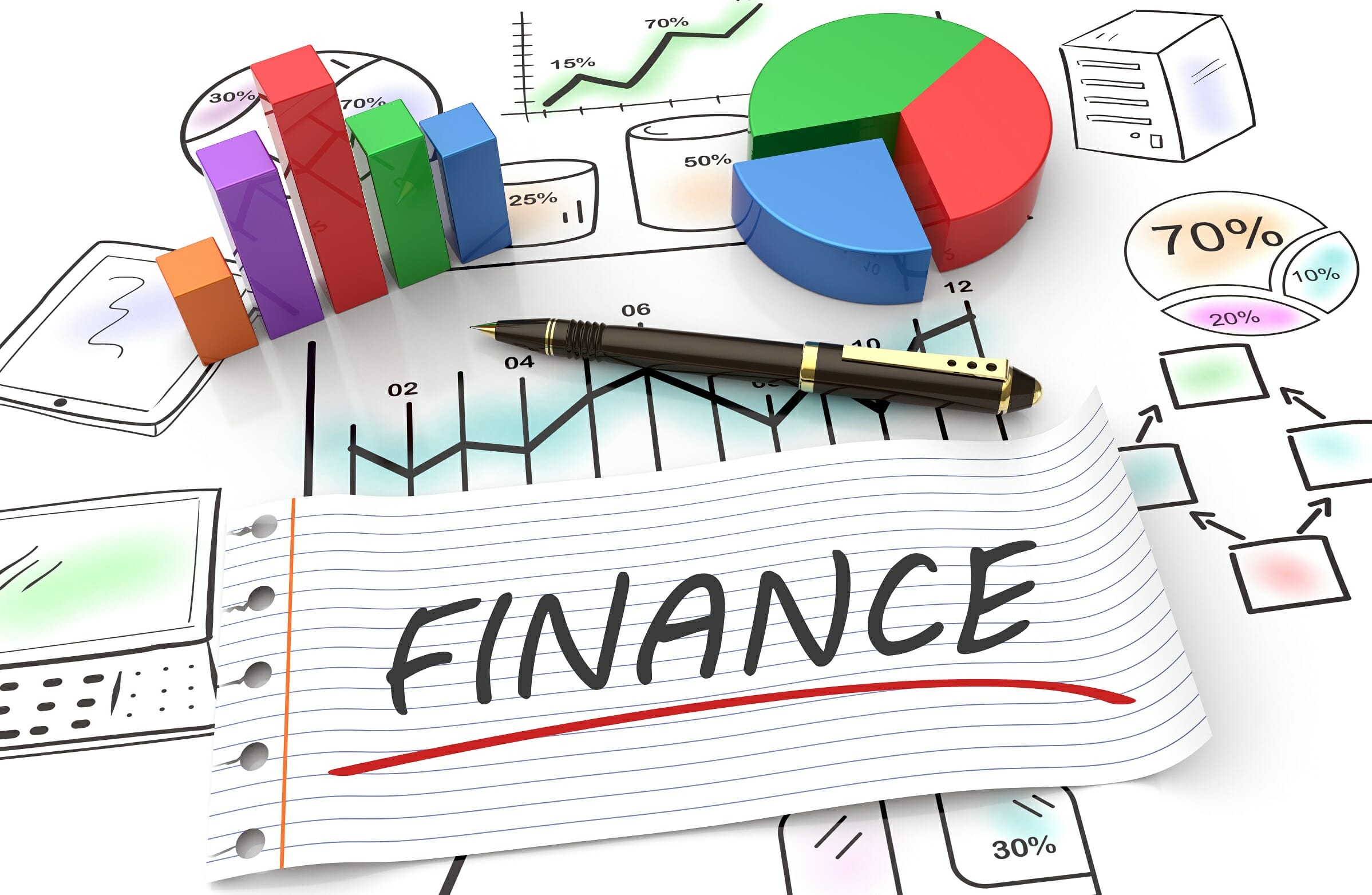
It is essential to establish monetary objectives. If this is something you have never done before, it may seem to be an onerous task to set financial objectivesfor the full year. There is a possibility that you have previously attempted to achieve yearly financial objectives but were unsuccessful in doing so. Do not allow yourself to get disheartened and question the purpose of the endeavor.
Setting financial objectives is very necessary to have a prosperous future financially. You seem to be looking forward to that vacation, that house, that security, and other things in the future.
And to make it a reality, you will need to establish a strategy and then execute the necessary steps. In this article, we will take a look at strategies forhow to set up your finances for a successful 2024.
Short-Term Goals To Boost Your Finances
Setting and achieving short-term objectives can help you feel more accomplished this year and improve your finances. These objectives, which include things like saving for minor purchases (like a new phone or laptop), may be completed in a year. Even if it will take longer to accomplish your planned objective, you may still prepare for the future in the near term.
Examine Your Financial Situation
One has to study the past carefully and draw lessons from errors to be ready for the future. You need to do a thorough examination of your financial situation. Examine your sources of income, ongoing costs, investments, and any obligations you may have.
Your financial situation will be clearly shown by this report, which will also point out areas that need work.
You may now make a new budget for 2024. It's important to adjust your budget regularly to reflect shifting financial objectives and situations. You should account for major life events like raising a family or organizing a big celebration in 2024 when creating your budget.
Set Clear Financial Goals
Determine your financial goals for the short, medium, and long terms first. Having clear objectives can assist provide direction and drive to work toward these goals, whether they be retirement savings, a dream trip, or a property.
If reaching these objectives seems too much, try breaking them down into more manageable milestones with reasonable deadlines; this will keep you inspired without making you feel stressed.
Reconfigure Your Budget
A sound financial foundation is a budget. Reviewing your expenditures and making adjustments in line with your objectives is an excellent way to ensure that your budget is serving you well in the new year. When you look at your costs, you may find areas where you can cut down on spending and allocate more funds to your most important objectives.
Spend Less And Make More
Finding methods to reduce your spending and increase your income is crucial if you want to strengthen your financial situation and position yourself for success in 2024.
You may get a lot closer to your financial objectives by eliminating wasteful spending and looking into other revenue streams. Here are some pointers to assist you in doing this;
Tips For Cutting Back On Spending
- To begin with, make a budget to keep track of your earnings and outlays. This can help you find places where you may make savings and provide you with a clear picture of where your money is going.
- Instead of going out to eat, think about making a food plan and bringing your lunch. You may save a lot of money on food bills by doing this.
- Examine your memberships and subscriptions. Any that you can live without or that you no longer use, cancel. This may free up more monthly funds.
Track Your Progress
One of the most important steps in reaching your financial objectives is tracking your progress. You can maintain your motivation, make changes as needed, and recognize your progress by keeping track of it.
Trackers and visual reminders may be quite effective tools for keeping you on task. Think about making a graphic depiction of your objective, such as a debt payment schedule or a savings thermometer.
Put it someplace you'll see it often, such as the mirror in your bathroom or as the backdrop on your phone. This continuous visual cue will act as a motivator and help you remember your objective.
Using printable debt trackers and financial calculators, in addition to visual reminders, may help you monitor your progress. You may enter your financial data into these tools to examine how your savings or debt will change over time. They may help you see your progress clearly, which can help you keep motivated and focused.
Long-Term Goals For Improving Your Finances
While pulling your credit report and adjusting your budget may be done quickly, some financial objectives will require more effort. Along the way, improving your money might be facilitated by taking action toward these objectives.
Pay Off High-Interest Debts
Over time, high-interest debt especially from credit cards or personal loans can seriously impede your ability to increase your money. To prevent paying compound interest over an extended period, think about paying off all of your obligations as soon as you can.
You may get advice for a structured debt management plan from a skilled counselor if handling many debts becomes too much for you to handle.
Evaluate Insurance Policies
Well-being is riches. Because healthcare prices are on the rise in India, it's important to have insurance; be sure you and your loved ones are adequately covered. If you already have health insurance, you should review your policy and take into account things like premium costs, exclusions, and coverage restrictions.
Getting both property and car insurance is something you should think about if you own both. Every insurance coverage you have, whether it is for health, life, house, or car, helps you maintain your financial stability.
Create An Emergency Fund
As the name implies, an emergency fund is something you should gradually accumulate; it serves as a safety net for unexpected expenses in life (such as unexpected medical crises or job loss). A minimum of six to twelve months' worth of living costs should be saved in your emergency fund.
Consider Investing
Based on past performance, investing in the stock market might potentially increase your money's growth rate over time compared to just keeping it in a savings account. There is a danger involved, so be sure you are informed.
Even if inflation is declining, it is now greater than what the Bank of England would prefer. This implies that if the interest rate on your savings account is lower than the growing cost of living, the value of your cash holdings may decrease over time.
Investing for Beginners is a daunting thing at the beginning, but Times Money Mentor offers a free course that may assist.
Build A Pension Pot
Individuals often underestimate their retirement needs. As a general guideline, you should contribute to your pension each month in an amount equal to your current age divided by two. This amount is the percentage of your pre-tax income.
Assuming you are thirty, you will have to make a 15% payment. That may seem like a lot, but keep in mind that this also includes any employer contributions and government tax relief.
Pay Off Your Mortgage Early
Most likely, the largest financial obligation you have is your mortgage. Careful budgetary preparation might save years off of it.
It's also probable that the interest you save will exceed what you would get from any savings account. However, be cautious of any early payback penalties.
Stay Focused On Your Money Goals
Without financial objectives, you'll likely spend money on a thousand other things. Decide what you want to do with your money and give it some thought. What dreams, both material and immaterial, do you have?
If you're not sure what your financial objectives are, try this easy exercise: Picture your life in five years. Think about your living situation and daily routine. What are you happy of have done between now and five years from now?
Extend your creativity and envision your life in ten or twenty years. Then picture yourself having just a few hours to live while lying on your deathbed. What successes would give you a sense of self-worth even in your last moments?
These important questions may motivate you and assist you in determining your financial goals. It's difficult to comprehend what you're sacrificing and striving for without well-defined financial objectives.
Importance Of Financial Planning For Achieving Goals
Financial planning is the key to reaching your goals and dreams because it shows you how to handle the tricky parts of life's money.
Planning your finances well is important for making your dreams come true, whether you want to buy a house, start a business, visit the world, or retire in comfort. Here are a few reasons why financial planning is important for reaching your goals:
Clarity And Focus
Planning your finances helps you understand your current financial position and your goals for the future. People can put their efforts and resources toward what matters to them by setting clear goals and making a plan to reach them.
Goal Setting And Prioritization
People can figure out their short-, medium-, and long-term cash goals by planning. Setting clear and attainable goals helps people make better financial choices, whether they're paying off debt, saving for college, or building wealth for retirement.
Resource Allocation
When you do financial planning, you look at your income, spending, assets, and debts to see how you can best use your money to reach your goals. By improving the way they spend, save, and manage their money, people can make sure that their resources are used effectively to reach their goals.
Risk Management
There are a lot of unknowns in life, and financial planning helps people lower their risks by making plans for what to do if something unexpected happens, like losing their jobs, getting sick, or the market going down. For a strong financial plan that protects against unexpected problems, it's important to have enough insurance, emergency cash, and a variety of investments.
Long-Term Wealth Accumulation
Planning your finances is a key part of getting rich and staying wealthy over time. People can use the power of compounding to get rich and become financially independent by constantly saving and investing over time. Investing in a variety of different types of assets and methods is important for getting the best returns with the least amount of risk.
Adaptability And Flexibility
When your life changes and your goals shift, a good financial plan can change with you. When people have big life events like getting married, having kids, changing jobs, or going through a major transition, financial planning helps them make changes to their plans and stay on track with their goals.
Peace Of Mind
One of the best things about planning your finances is that it can give you peace of mind. People can feel less stressed and anxious about their finances if they have a clear financial plan and the confidence that comes with being ready for the future. This lets them focus on loving life and following their passions.
Frequently Asked Questions
What's The Significance Of Creating A Budget And Expense Plan?
Budgeting helps allocate funds wisely, distinguish essential from discretionary expenses, and prioritize savings and investments.
What Steps Can You Take To Assess Your Current Financial Situation?
Review income sources, analyze expenses, evaluate debt, and assess savings and investments.
Why Is It Essential To Regularly Review And Adjust Your Financial Plan?
Monitoring progress, revisiting goals, and making necessary changes ensure adaptability and continued financial success amidst changing circumstances.
Final Thoughts
To understand how to set up your finances for a successful 2024, maintain a positive attitude about the actions you are doing to attain your objectives, and keep your personal goals in mind. Don't forget that progress, not perfection, is the most important thing.
Taking a few steps in the direction of where you want to go is preferable to taking none at all, and you will be amazed at how big the significance of those seemingly little movements may be. If you are having trouble creating a budget, you may want to consider using budgeting software to keep your money in order.




